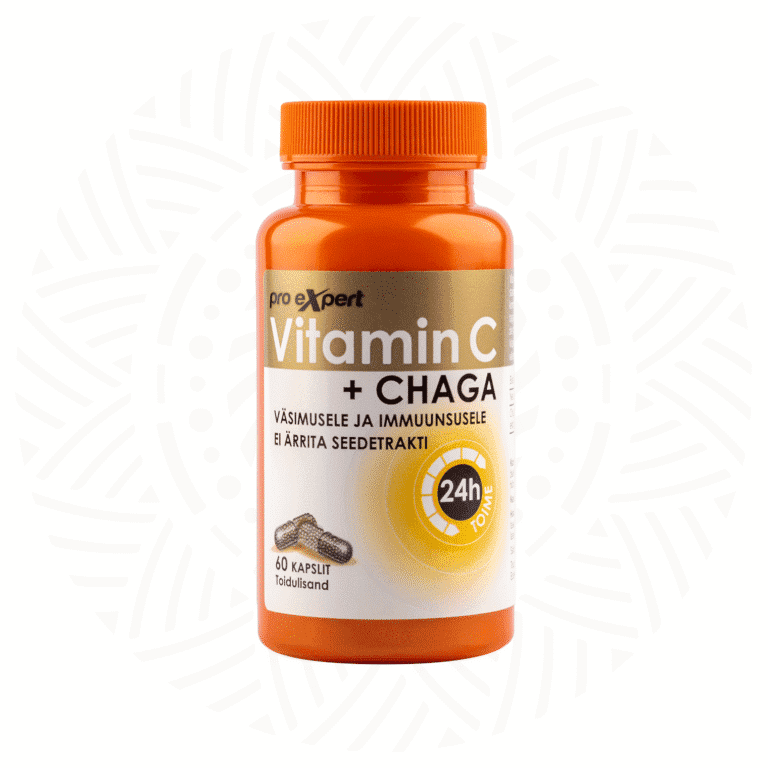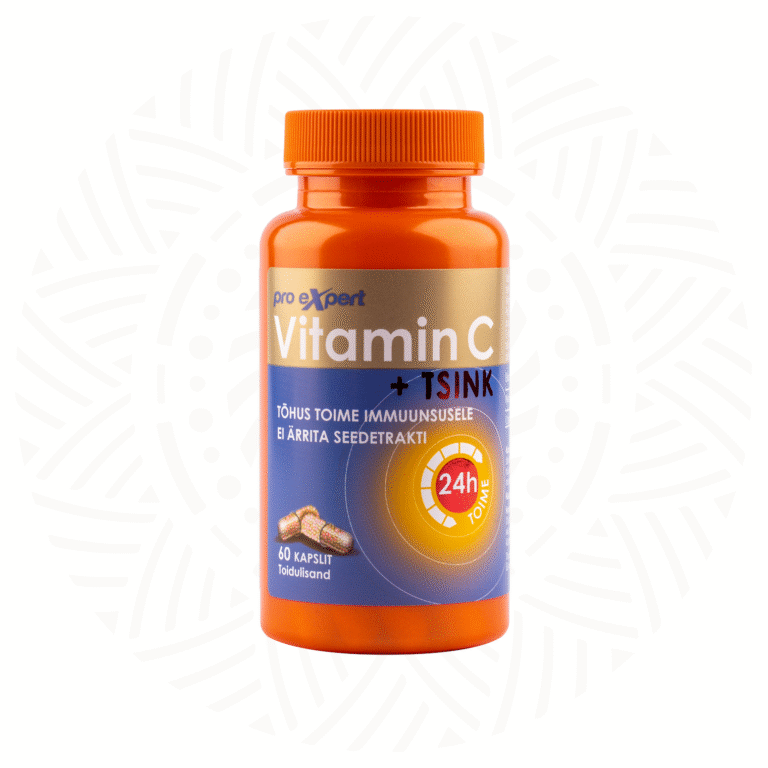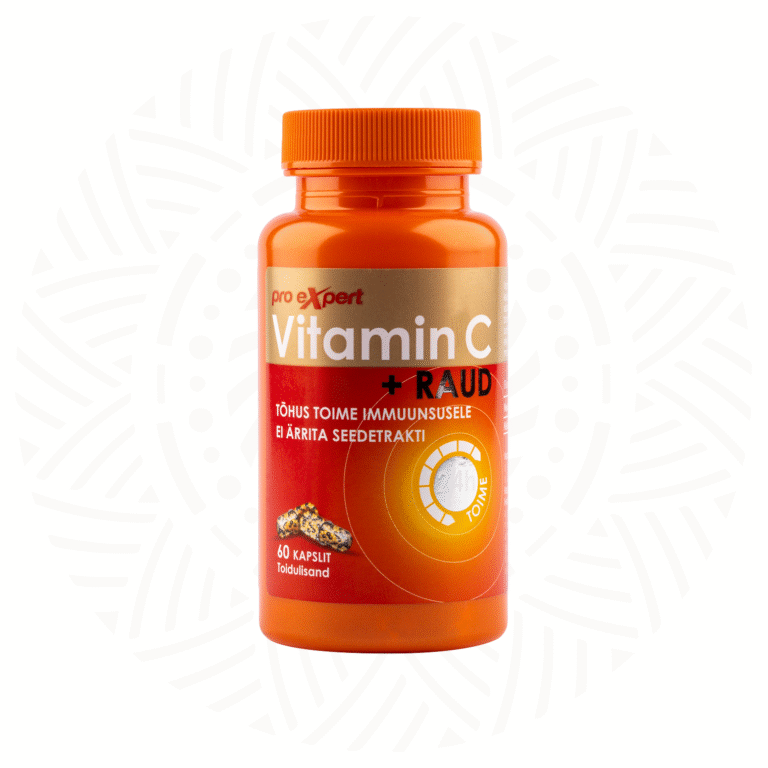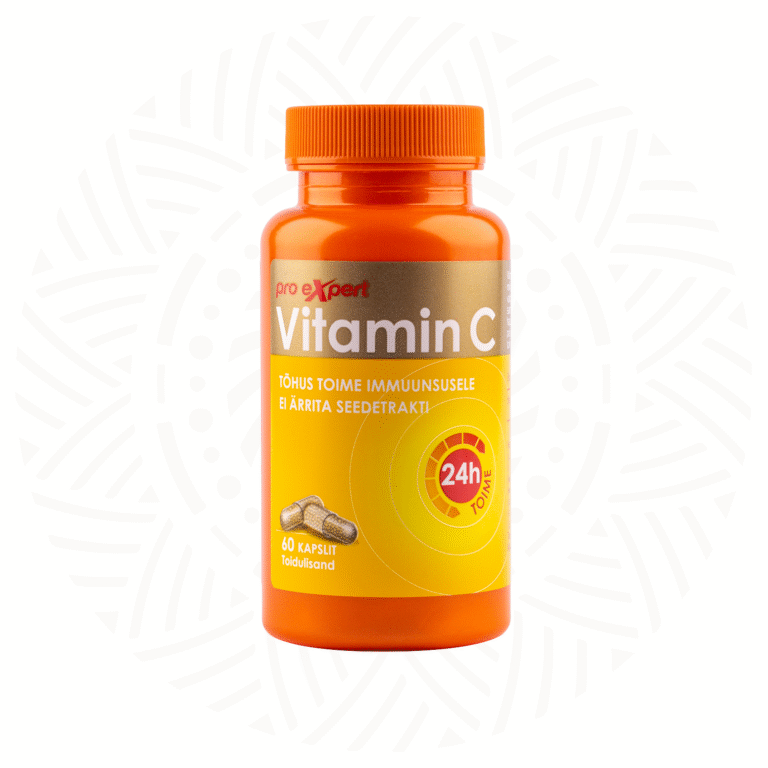Vitamin C or ascorbic acid is undoubtedly one of the most well-known vitamins that people use to boost their energy during the fall and winter seasons. But do you know what important role it actually plays for your health? Below, we’ll outline the reasons why it’s essential to care for your vitamin C levels year-round.
Why does the body need Vitamin C?
Vitamin C is a water-soluble vitamin that is necessary for the normal development of gums, skin, capillaries, teeth, ligaments, and bones, as well as for wound healing. Vitamin C also provides protection against colds and stress.
Who and why is Vitamin C deficiency common?
The human body cannot produce its own vitamin C, so it must be consistently obtained through food. A one-sided diet is largely responsible for vitamin C deficiency. It’s also quite common for even people who eat consciously to experience a lack of this essential vitamin.
Why? Because vitamin C is very sensitive to temperature, and about 60% is lost during cooking. Vitamin C loss also occurs due to light, air, and heat. Our bodies cannot store vitamin C, and reserves are short-lived. Know that prolonged vitamin C deficiency is harmful or even dangerous to the body.
People with increased vitamin C needs include smokers, those with high physical activity, pregnant and breastfeeding women.
Vitamin C strengthens the immune system
Are you often sick and seem to attract the next viral illness like a magnet? Immune cells contain high amounts of vitamin C, which the body rapidly uses during inflammatory processes. That’s why vitamin C needs to be present in the body in sufficient amounts to prevent viral infections and to combat them effectively.
Regular intake of vitamin C helps increase body performance, shorten the duration of illness, and ease the course of the illness. It’s a powerful antioxidant that strengthens your immune system during viral infections.
Vitamin C reduces fatigue
Are you suffering from unexplained fatigue? Know that fatigue is a symptom that must be addressed to prevent burnout. With vitamin C deficiency, you lose energy, which mainly manifests as fatigue, weakness, and exhaustion. Regular intake of vitamin C adds vitality and energy to your day.
Vitamin C prevents and treats iron deficiency
Did you know that vitamin C improves iron absorption by up to 5 times? Iron deficiency is a widespread issue, particularly affecting women of childbearing age. To avoid the serious consequences of iron deficiency, you should consume vitamin C daily.
Vitamin C is a powerful antioxidant
Vitamin C is one of the most powerful antioxidants, helping to prevent cell damage caused by free radicals and reduce oxidative stress. Prolonged oxidative stress is a significant cause of cardiovascular diseases, cancers, diabetes, and many other serious health problems.
Vitamin C maintains youthful skin and glow
If you feel that your skin is tired and has lost its glow, it may need an immediate boost. Vitamin C is a superstar in today’s cosmetics industry because it effectively prevents and reduces signs of skin aging. Vitamin C helps collagen formation, absorption, and retention in the skin.
Vitamin C helps with bleeding gums
Bleeding gums are a key sign of vitamin C deficiency. Due to the lack of vitamin C, gum tissue weakens, becomes inflamed, and swells. Due to the fragility of capillaries, gums may appear red or even purple.
In severe cases, even healthy teeth may fall out. Vitamin C helps prevent and treat gum problems. It strengthens the walls of blood vessels and keeps them healthy and flexible.
Best sources of Vitamin C
Fresh fruits and vegetables, as well as our own domestic berries, are rich in vitamin C. You’ve probably heard the saying that an apple a day keeps the doctor away. In addition to apples, good domestic sources of vitamin C include bell peppers, turnips, rose hips, black currants, and sea buckthorn berries.
Eating at least 5 portions of different fruits is likely to provide the necessary amount of vitamin C. According to the Health Development Institute, only 10% of people consume the required amount of fruits and vegetables. If you are among the 90%, you should seriously consider taking vitamin C as a supplement.
Pure vitamin C is acidic and may irritate many people’s stomach and intestines
People with sensitive stomachs may find regular vitamin C too irritating for the digestive system.
The vitamin C shelf in pharmacies has the widest selection, and choosing the right one can be tricky. It’s better to prefer non-acidic, neutral pH vitamin C. It is well-tolerated by sensitive digestive systems and allows vitamin C to be absorbed without irritating the digestive tract.
What is the best Vitamin C?
The human body can only absorb 200mg of vitamin C at a time. The body cannot absorb larger amounts at once, and excess is excreted in urine. That’s why it’s recommended to take vitamin C in smaller doses every 4 hours. True, this is a bit inconvenient.
If you prefer to take it once a day, choose slow-release vitamin C. The active ingredient in slow-release vitamin C is gradually released, maintaining a consistent level in the blood for a longer period. Slow-release vitamin C ensures effective protection for the whole day.
Good health is the sum of choices!








